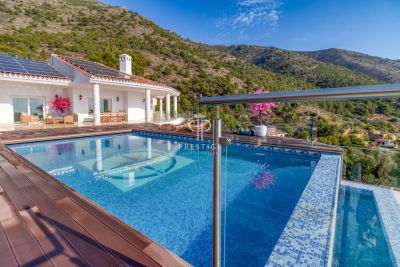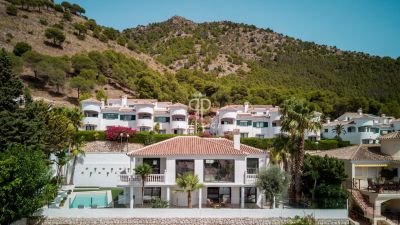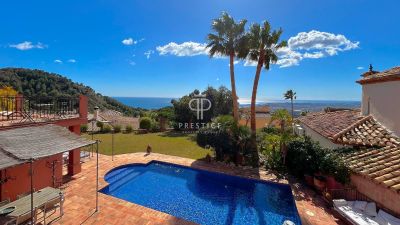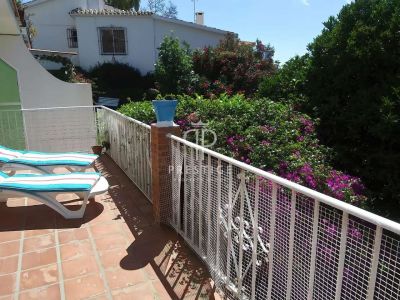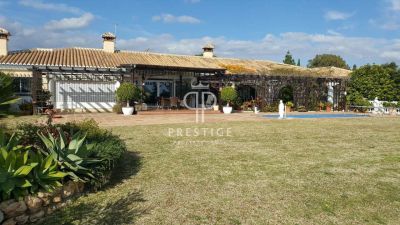Mijas Property For Sale
Area Guide
Known as the white village, Mijas is situated to the west of Fuengirola in the foothills of the coastal mountain range. Mijas encompasses the old town of Mijas Pueblo, Las Lagunas and La Cala de Mijas. It is home to approximately 55,000 inhabitants, almost 2/3 of which are non-Spanish who enjoy almost 3000 hours of sunshine per year. The village and coast are one of the more attractive in the Costa del Sol, enhanced by the Fuengirola river which flows through the centre of the municipality.
The area is highly developed down to the coast, resulting in a wide choice of Mijas property to meet your needs... from quiet townhouses on secure urbanisations to large detached villas, seafront apartments or perhaps a country home in the hills. We have a large selection of Mijas property for sale.
There are a number of wonderful restaurants and bars serving both international and local cuisine, which can be sampled from the many warm and sunny terraces. There are 9 sandy beaches to the south east of Mijas, with many nice properties to be found right on the seafront or just inland with views of the Mijas Costa. Mijas is famous for the donkey taxis that can be found in the central plaza, and will show you some of the sights for a modest fee. Along the coast there are several watchtowers built between the 16th and 19th centuries as well as large selection of beautiful Mijas property.
There are a number of top quality golf courses in the area, including Mijas Golf International with two 18-hole courses and Miraflores Golf with 18 holes and magnificent panoramic scenery. We have many examples of property in Mijas on or near golf courses. View our selection of Mijas property using the links below. There are also a number of other leisure amenities in the area, including horse racing, horse riding, a water park, karting, watersports along the coast, tennis, gyms, trekking and more. Why not sample what the area has to offer by purchasing Mijas property such as a villa, house, townhouse or apartment in this developed and interesting region of Spain.
Buying a Property in Spain
1. Putting down a Holding Deposit
On finding a property you wish to purchase you will need to negotiate the terms, price and conditions of the sale with the owner. This part of the process is not binding. We would recommend using an independent English speaking legal advisor. Once a purchase price has been agreed, normally a holding or reserve deposit will be required to ensure the property is removed from the market. The sum required will vary between properties and will be based on the purchase price. A time limit for the preagreement to be signed will be arranged and there will also be legal checks to be made.
2. Setting up a Pre-agreement (Contrato privado de compraventa)
The pre-agreement will set out the conditions under which the Buyer and Seller agree to complete the purchase of the property and the price they have agreed upon. Relevant details will generally be included for example the property details, purchase price and the date for completion. A deposit will be required at this point, this will vary, but will generally be 10% of the agreed price. This agreement will include a penal clause if the sale does not go through. If the seller pulls out of the sale your compensation will be double the deposit you have paid, but if you decide not to go through with the sale then your deposit will be lost. Certain checks will need to be made before signing the contract, checks should be made against the title of the property, mortgage status and if the property has any debts held against it. The planning status should also be looked into. These conditions can be varied by the seller and the buyer and other types of agreement can be made.
3. The Contract (Escritura de compraventa)
Before a non-Spanish purchaser can buy a Spanish property they will need to have set up a Spanish bank account and obtained a Spanish tax number (NIE). The completion will take place in the presence of a Notary Public. This is a Spanish public official, by law the deed of sale must be witnessed by a Notary Public. You will also need your own independent, expert legal advisor to act on your behalf. On Completion the buyer must pay the balance, that is the price agreed after the deposit has been deducted, plus any other fees on the completion date. Both buyer and seller must sign the Escritura de compraventa contract, (this is the Spanish equivalent of the title deeds). The title deeds (escritura) will be given to the buyer, this will be done in the presence of a Notary Public, they will certify that the transfer has taken place. The tax office will be sent a copy and the property registry will be informed of the transfer.
